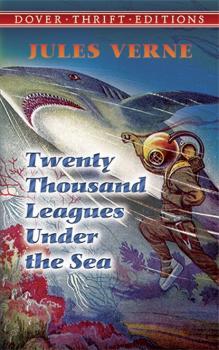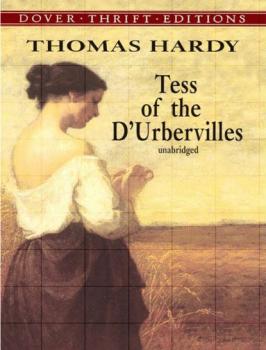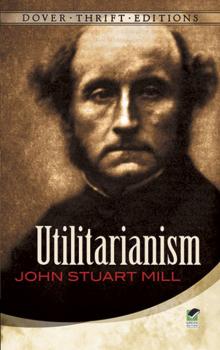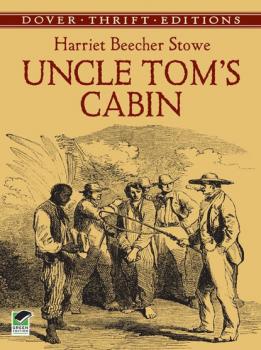Dover Thrift Editions
Скачать книги из серии Dover Thrift EditionsThe Vicar of Wakefield
Rich with wisdom and gentle irony, Oliver Goldsmith's only novel is a charming comedy that tells of an unworldly and generous vicar who lives contentedly with his large family until disaster strikes. When his idyllic life is brutally interrupted by bankruptcy and his daughter's abduction, he lands in prison. Yet these misfortunes fail to conquer the vicar's spirit or cause him to lose sight of Christian morality.A delightful lampoon of such literary conventions of the day as pastoral scenes, artificial romance, and the hero's stoic bravery, The Vicar of Wakefield has remained a classic since its first publication in 1766.
The Theory of the Leisure Class
"The most impressive satirist of his day." — Time MagazineWith devastating satiric wit, this book examines the hollowness and falsity suggested by the term «conspicuous consumption» (coined by Veblen) and exposes the emptiness of many cherished standards of taste, education, dress, and culture. Since its original publication in 1899, the work has become a classic of social and economic thought and policy and exerted an influence widely felt beyond the sphere of economics.For Veblen, the shallowness and superficiality of society resulted from the tendency to believe that true accomplishment lay in arriving at a condition of ostentatious wealth and status. In developing this thesis, he traces the origins and development of ownership and property, offering extraordinary insights into the phenomenon of consumerism, the evolution of class structure, the rise of leisure time and how modern societal goals are grounded in pecuniary aspirations and achievements.Students, sociologists, historians, economists — anyone interested in the motives and behavior of human beings within a large-scale social context — will find this time-honored investigation still relevant and readable over a century after its first appearance. It belongs in the library of every thinking person.
White Nights and Other Stories
From the author of Crime and Punishment comes this remarkable collection of short fiction. A selection of ten compelling tales, steeped in Dostoyevsky's characteristic themes of spiritual torment and psychological struggle, evoke life in Czarist Russia. Featured stories include «The Dream of a Ridiculous Man,» «Bobok,» «An Honest Thief,» «An Unpleasant Predicament,» «Another Man's Wife,» «The Peasant Marey,» «The Crocodile,» "A Faint Heart," «A Christmas Tree and a Wedding,» and the title work. Fyodor Dostoyevsky (1821–1881) created powerful depictions of the human condition that led to significant developments in twentieth-century thought, including psychoanalysis and existentialism. His influence resonates in the works of latter-day authors such as Proust, Faulkner, Hemingway, and Kafka. This collection of his short stories offers thought-provoking glimpses into the Russian author's moving portrayals of the conflict between flesh and spirit.
Twenty Thousand Leagues Under the Sea
The «man who invented the future,» French novelist Jules Verne fanned mankind's desire to explore earth's hidden territories. His prophetic 1870 adventure novel, featuring a fabulous underwater craft commanded by the brilliant and mysterious Captain Nemo, predated the deep-water submarine.Weaving amazing scientific achievements with simple, everyday occurrences, this memorable tale brims with detailed descriptions of a futuristic vessel and bizarre scenes of life on the ocean's bottom. On-board travelers view Red Sea coral, wrecks of a historic naval battle, Antarctic ice shelves, and the fictional Atlantis. In addition, they confront a giant squid and belligerent cannibals, among other rousing adventures.The crowning achievement of Verne's literary career, Twenty Thousand Leagues Under the Sea not only influenced H. G. Wells and future generations of writers, but also inspired numerous films.
Tess of the D'Urbervilles
The ne'er-do-well sire of a starving brood suddenly discovers a family connection to the aristocracy, and his selfish scheme to capitalize on their wealth sets a fateful plot in motion. Jack Durbeyfield dispatches his gentle daughter Tess to the home of their noble kin, anticipating a lucrative match between the lovely girl and a titled cousin. Innocent Tess finds the path of the d'Urberville estate paved with ruin in this gripping tale of the inevitability of fate and the tragic nature of existence.Subtitled A Pure Woman Faithfully Presented, Thomas Hardy's sympathetic portrait of a blameless young woman's destruction first appeared in 1891. Its powerful indictment of Victorian hypocrisy, along with its unconventional focus on the rural lower class and its direct treatment of sexuality and religion, raised a ferocious public outcry. Tess of the D'Ubervilles is Hardy's penultimate novel; the pressures of critical infamy shortly afterward drove the author to abandon the genre in favor of poetry. Like his fictional heroine, the artist fell victim to a rigidly oppressive moral code. Today, Tess is regarded as Hardy's masterpiece, embodying all of the most profoundly moving elements of its creator's dark vision. No perspective on 19th-century fiction is complete without a consideration of this compelling tale, now available in an inexpensive and high-quality edition.
Utopia
First published in Latin in 1516, Utopia was the work of Sir Thomas More (1477–1535), the brilliant humanist, scholar, and churchman executed by Henry VIII for his refusal to accept the king as the supreme head of the Church of England. In this work, which gave its name to the whole genre of books and movements hypothesizing an ideal society, More envisioned a patriarchal island kingdom that practiced religious tolerance, in which everybody worked, no one has more than his fellows, all goods were community-owned, and violence, bloodshed, and vice nonexistent. Based to some extent on the writings of Plato and other earlier authors, Utopia nevertheless contained much that was original with More.In the nearly 500 years since the book's publication, there have been many attempts at establishing «Utopias» both in theory and in practice. All of them, however, seem to embody ideas already present in More's classic treatise: optimistic faith in human nature, emphasis on the environment and proper education, nostalgia for a lost innocence, and other positive elements.In this new, inexpensive edition, readers can study for themselves the essentials of More's utopian vision and how, although the ideal society he envisioned is still unrealized, at least some of his proposals have come to pass in today's world.
The Winter's Tale
"A merry winter's tale would drive away the time trimly," suggests a character from The Old Wives' Tale, a play by one of Shakespeare's lesser-known contemporaries. And indeed, Elizabethan audiences recognized a «winter's tale» as a fanciful story, rendered all the more appealing by its very improbability. The Bard's version of this traditional entertainment is a charming romantic comedy, but with undertones of tragedy.Running an emotional gamut from betrayal and broken hearts to a lighthearted romp, the tale begins with the tyrannical actions of a jealous king, whose baseless suspicions of his wife and best friend destroy his own family. The play's second half takes place sixteen years later, when the lovely plot turns toward romance and reconciliation. A sheep-shearing festival provides the occasion for a picturesque assembly of country folk, who contribute some of the play's finest moments with their rustic songs and dances.Originally presented circa 1611, this tragicomedy abounds in disguises and mistaken identities, courtly intrigue, miracles, and all the theatrical elements that make Shakespeare's works a timeless source of entertainment and enlightenment.
Utilitarianism
How do we decide what is «good» and what is «bad»? According to the ethical theory of Utilitarianism, to do good is to «always perform that act, of those available, that will bring the most happiness or the least unhappiness.» By far the most widely read introduction to this theory, John Stuart Mill's Utilitarianism is one of the most important and controversial works of moral philosophy ever written.In this major contribution to ethical history, Mill's treatise defends the view that all human action should produce the greatest happiness overall, and that happiness itself is made up of «higher pleasures,» such as the cultural, intellectual, and spiritual, and «lower pleasures,» such as the physical. The relationship of utilitarian theory to other ethical systems, and powerful arguments in its favor — especially when concerning justice — are brilliantly discussed. How do we weigh options to maximize happiness for self and for those around us? From common-day dilemmas to large-scale social decisions, this exposition remains as relevant today as it was to intellectual and moral dilemmas of the nineteenth century.
Uncle Tom's Cabin
Selling more than 300,000 copies the first year it was published, Stowe's powerful abolitionist novel fueled the fire of the human rights debate in 1852. Denouncing the institution of slavery in dramatic terms, the incendiary novel quickly draws the reader into the world of slaves and their masters. Stowe's characters are powerfully and humanly realized in Uncle Tom, a majestic and heroic slave whose faith and dignity are never corrupted; Eliza and her husband, George, who elude slave catchers and eventually flee a country that condones slavery; Simon Legree, a brutal plantation owner; Little Eva, who suffers emotionally and physically from the suffering of slaves; and fun-loving Topsy, Eva's slave playmate. Critics, scholars, and students are today revisiting this monumental work with a new objectivity, focusing on Stowe’s compelling portrayal of women and the novel's theological underpinnings.
The Trojan Women and Hippolytus
These two powerful classics of ancient drama are excellent examples of the author's gift for adapting traditional material for decidedly nontraditional effect. Through them Euripides critically examines social and moral aspects of contemporary life and even specific political events. He endows his figures with shrewdly observed individual character, implicitly deflating the emblematic simplicity of traditional narratives and making him seem the most modern of the great Greek dramatists.The Trojan Women, one of the most powerful indictments of war and the arrogance of power ever written, is played out before the ruined walls of Troy. A grim recounting of the murder of the innocent, the desecration of shrines, and the enslavement of the women of the defeated city, it reveals the futility of a war fought for essentially frivolous reasons, in which the traditional heroes are shown to be little better than bloodthirsty thugs. Hippolytus is primarily about the dangers of passion and immoderation, whether in pursuing or in thwarting normal desires — struggles symbolized by the gods, who embody natural forces and behave like irresponsible humans.Required study for any college course in literature and mythology, these two masterpieces are essential reading for anyone interested in the roots of world drama.









